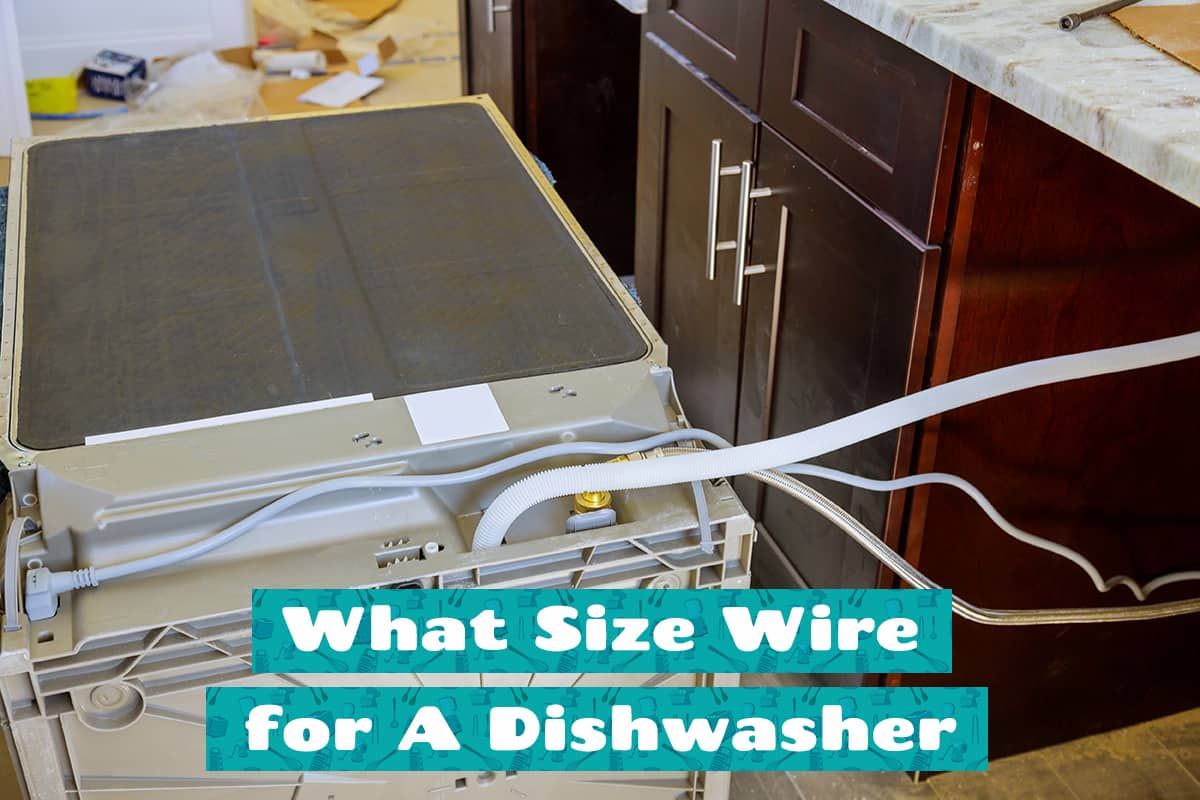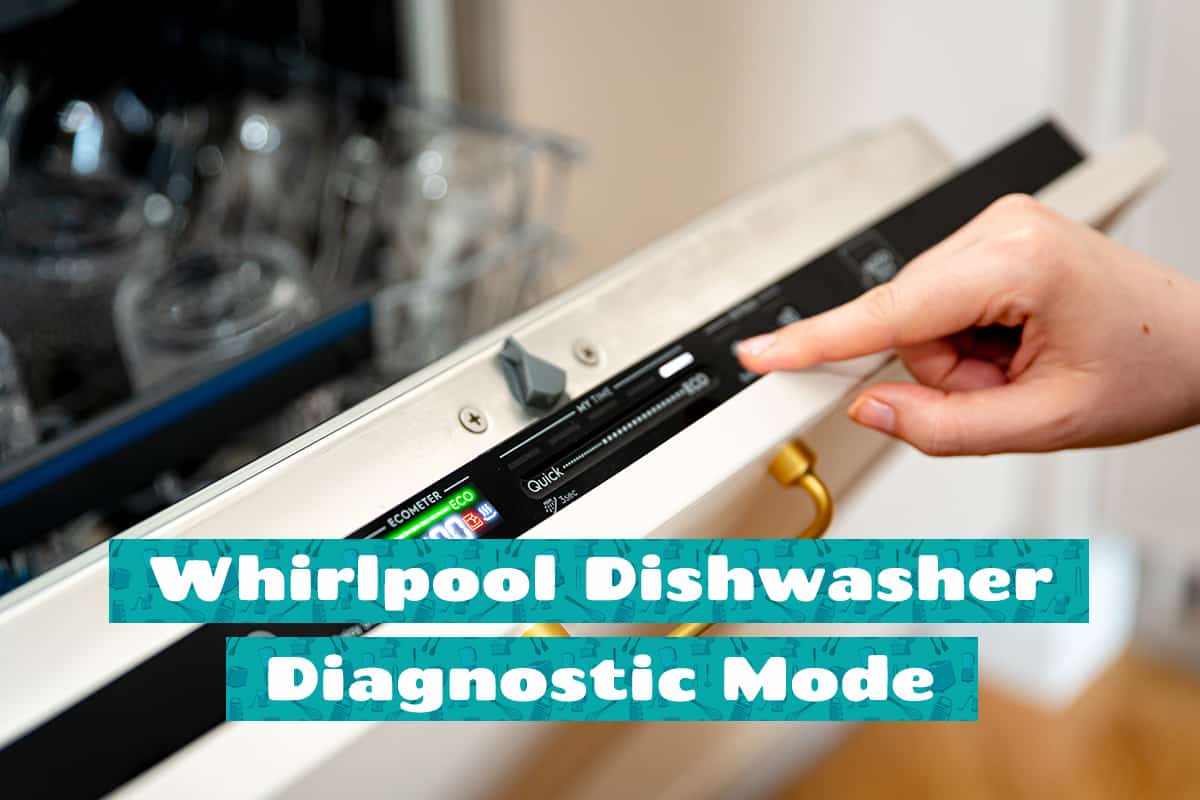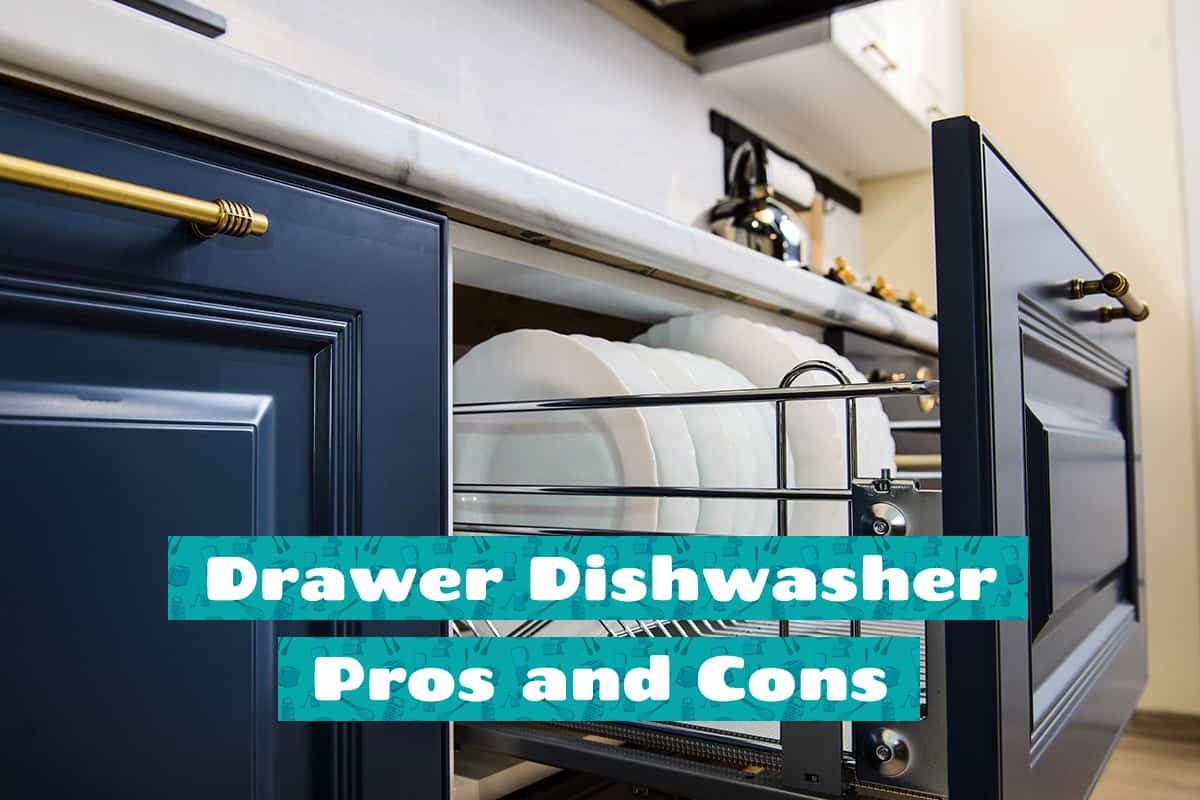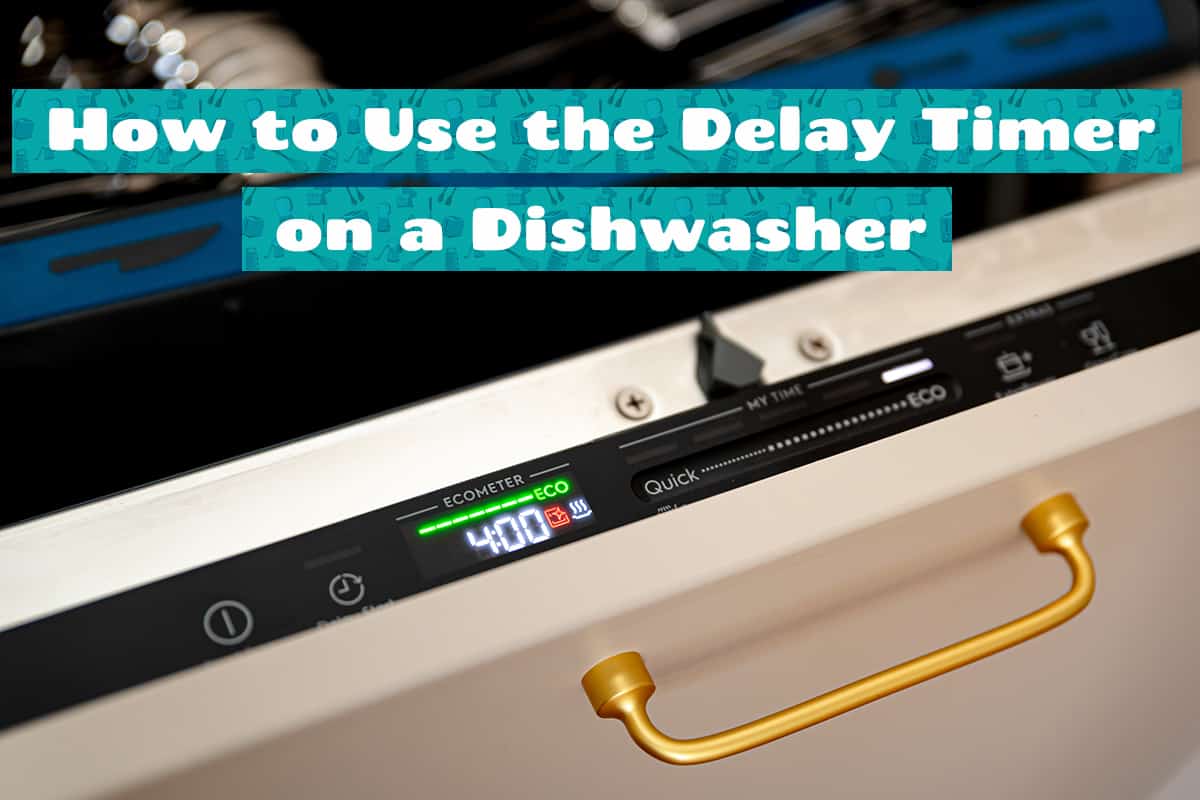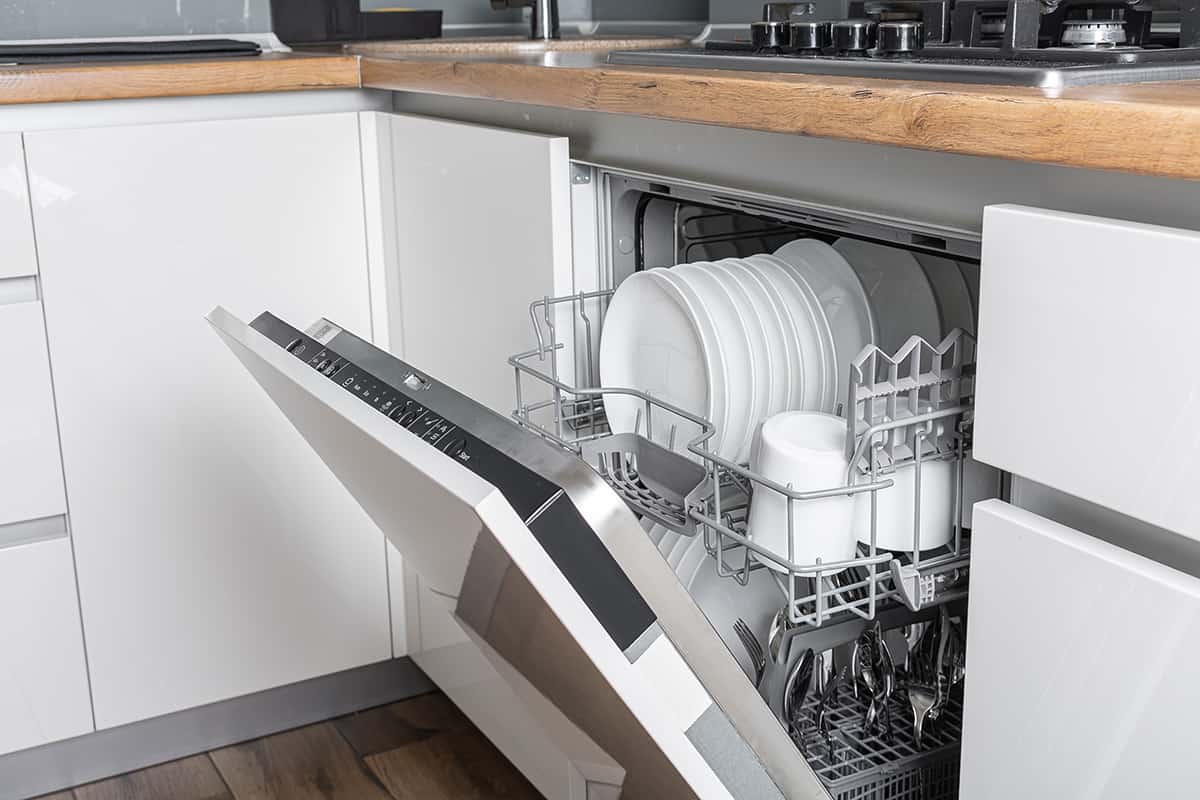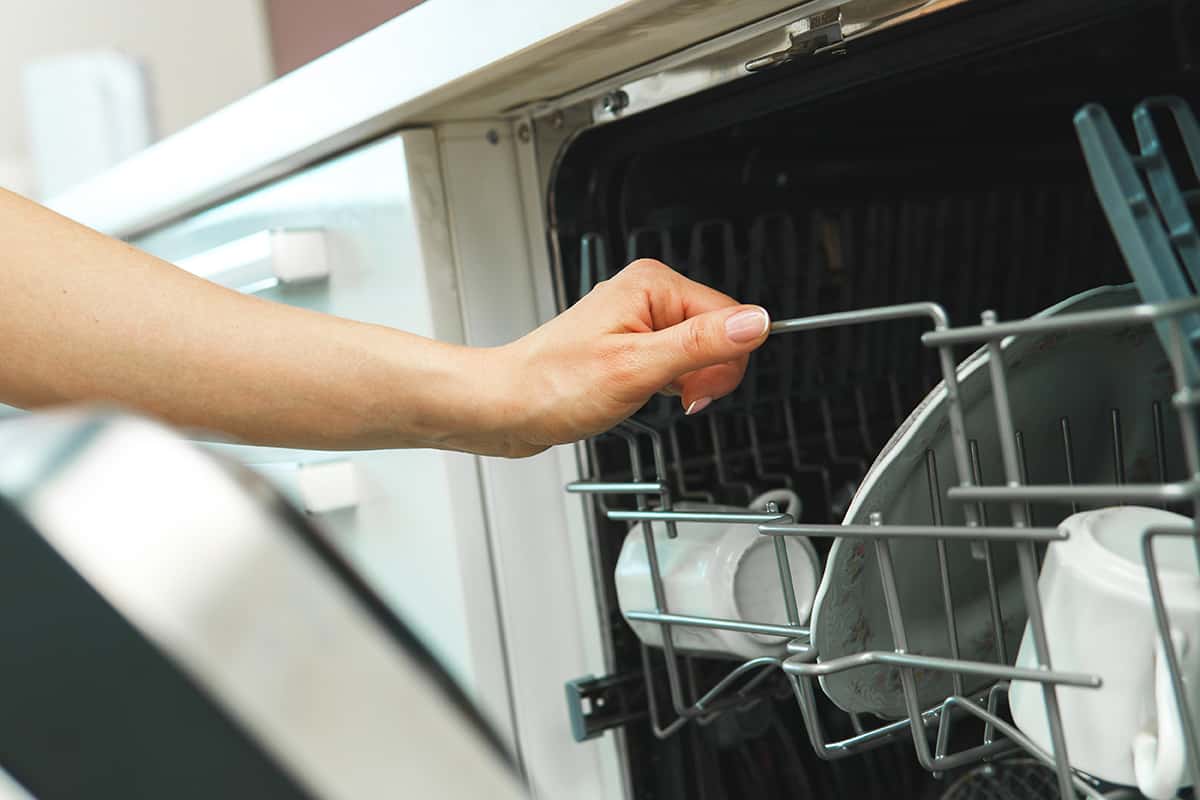Wiring a dishwasher might not be the first thing you think about when upgrading your kitchen, but if it doesn’t come with a power cord, it’s a necessary step. The correct wire size ensures the appliance operates efficiently and safely.
The common wire sizes for dishwasher installations are 14-gauge and 12-gauge wires. Both are suitable but the right choice depends on the dishwasher’s power requirements and the circuit’s load.
In this guide, we will learn the specifics of dishwasher wiring, how to determine the appropriate wire size and more.
Basics of Dishwasher Installation

Your dishwasher operates on electricity, and like all electrical appliances, it requires a specific amount of voltage and amperage.
The voltage is the pressure from an electrical circuit’s power source that pushes charged electrons (current) through a conducting loop. Household dishwashers in the U.S. typically run on a 120-volt circuit.
The amperage, or current, is the amount of electricity flowing in the circuit. Many modern dishwashers need a circuit rated for 15 to 20 amps.
Dishwashers also have a wattage rating, which is the unit for measuring power. You can calculate it by multiplying the voltage by the amperage. The resulting figure indicates the dishwasher’s maximum power draw.
Importance of Wire Size in Electrical Installations
The term ‘wire size’ refers to the diameter of the wire and is usually given in American Wire Gauge (AWG).
The right wire size ensures that your dishwasher and other electrical appliances run efficiently and safely. When electricity flows through a wire, it faces resistance, just like water flowing through a pipe. The thicker the wire, the less resistance it presents, allowing more electrical current to flow through.
Your dishwasher needs a certain amount of electricity (current) to operate correctly. If the wire is too thin for the current it needs to carry, it will resist the electrical flow, and the appliance may not receive enough power to work correctly.
When the correct wire size is used, your dishwasher can operate at its full capacity without straining the electrical system, prolonging the appliance’s lifespan and the wiring.
Risks Associated with Incorrect Wire Size
- Overheating: If a wire is too thin (a higher AWG number) for the current it’s carrying, it can heat up. Prolonged overheating can melt the wire’s insulation and start an electrical fire.
- Undervoltage: Conversely, if the wire is too thin, the dishwasher may not receive the full voltage it needs to function correctly. This lack of power can cause the dishwasher to perform poorly or not work at all.
- Short Circuit: An overheated wire can also lead to a short circuit if the wire’s insulation melts, and bare wires come into contact. A short circuit can result in a power outage or an electrical fire.
- Damage to Appliance: The incorrect wire size can also affect the appliance’s functionality and longevity. If the dishwasher isn’t getting enough power due to an undersized wire, it may operate under stress, reducing its lifespan and efficiency.
Understanding Wire Gauge Numbers
Wire gauge numbers might seem counterintuitive because a larger number means a smaller wire. For example, a 14-gauge wire is thicker than a 16-gauge wire.
This numbering system is due to the process of making wire. The wire is pulled through progressively smaller dies, and each time it passes through a die, the “gauge” number increases.
Standard Wire Sizes for Dishwashers
The amperage or current capacity of a circuit determines the appropriate wire size for that circuit. In simple terms, the amperage refers to the amount of electricity flowing through the wires. High-amperage circuits require thicker wires (lower gauge number), while low-amperage circuits can use thinner wires (higher gauge number).
The dishwasher’s amperage requirement is usually stated on its specifications label or in the user manual. It’s essential to match the wire size to the dishwasher’s amperage requirement and the amperage capacity of the circuit.
14-Gauge Wire for 15-Amp Circuits
For a 15-amp circuit, the standard wire size is 14-gauge. This gauge is suitable for most residential dishwashers and is widely used because of its ample capacity for the appliance’s typical power draw.
12-Gauge Wire for 20-Amp Circuits
If your dishwasher is on a 20-amp circuit, you should use a 12-gauge wire. This wire is thicker than a 14-gauge wire and can safely carry the higher electrical load on a 20-amp circuit. Some high-end or commercial-grade dishwashers might require a 20-amp circuit due to their higher power draw.
How to Determine the Right Wire Size for Your Dishwasher
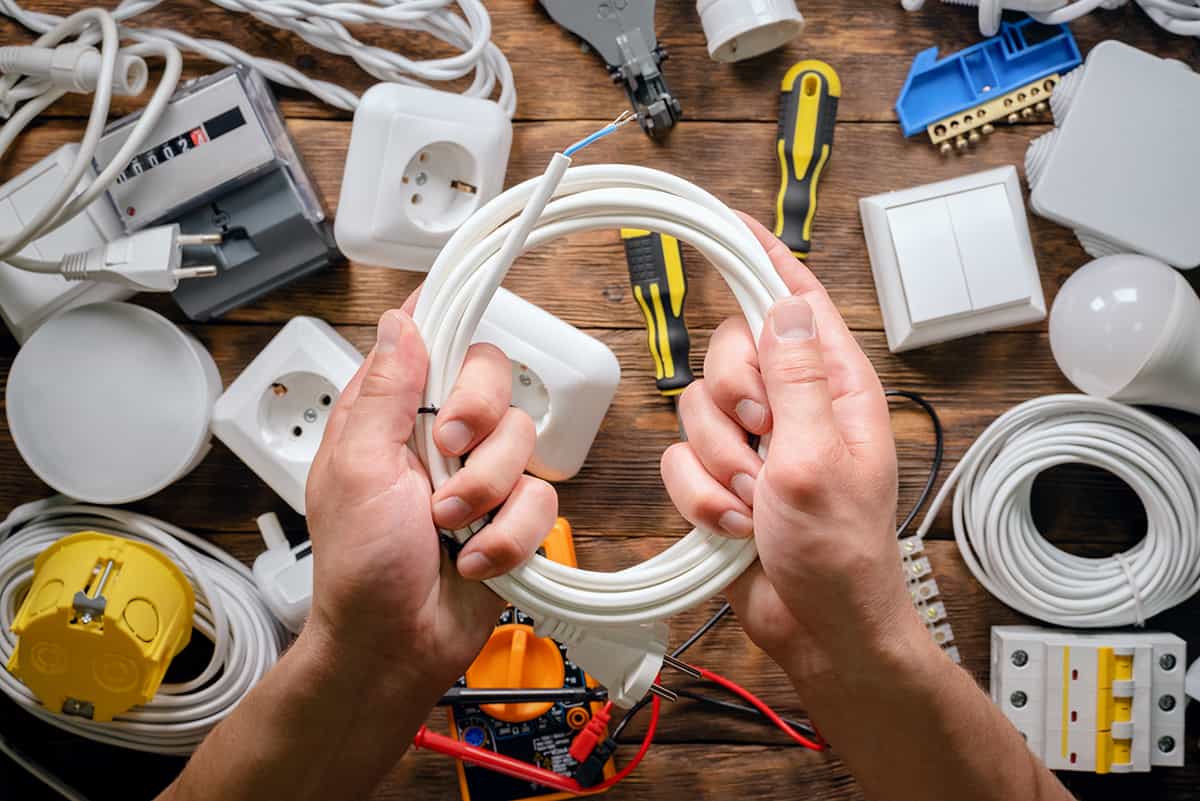
There are several steps and factors to consider in this process.
1. Review the Dishwasher’s Specifications
These details are typically found in the user manual or on a label attached to the appliance. The specifications provide the voltage and amperage requirements, which guide your choice of wire size.
2. Determine the Circuit Amperage
This information is usually displayed on the circuit breaker in your electrical panel. Most home dishwashers are on either a 15-amp or a 20-amp circuit.
3. Choose the Right Wire Size Based on Circuit Amperage
Once you know the circuit amperage, you can select the correct wire size. For a 15-amp circuit, a 14-gauge wire is standard. For a 20-amp circuit, a 12-gauge wire is needed.
Considerations for Wire Material and Color Coding
- Material: Copper is the most common wire material due to its excellent electrical conductivity. It is also highly resistant to heat, reducing the risk of overheating.
- Color Coding: Understanding wire color coding is essential for safe installation. Typically, black wires are “hot,” carrying the electrical current. White wires are “neutral,” completing the electrical circuit, and green or bare copper wires are “ground,” providing a safe path for electrical current in case of a fault.
Consult a Professional if You are Unsure
Electrical installations can be complex and potentially dangerous if not done correctly. If you have any doubts about choosing the right wire size or installing it safely, it’s best to consult a professional electrician. They can ensure the electrical setup for your dishwasher meets all safety standards and is suitable for your specific appliance.
